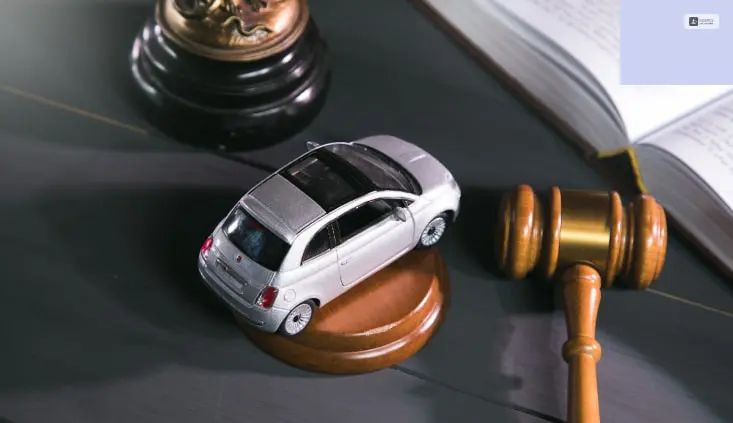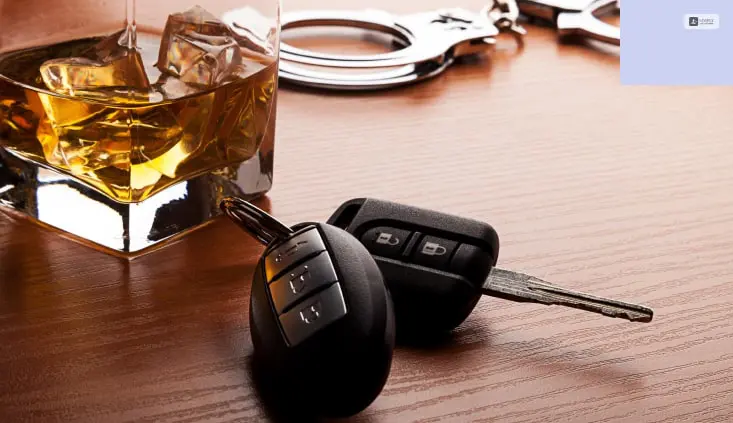
While a DUI remains on your criminal record permanently, it doesn’t necessarily mean it will stay on your driving record forever. You should know the distinctions between the two and their punishments, fines, and penalties. Keep reading to learn more about DUIs on your driving record how long does a dui stay on your record.
How Long Does A DUI Stay On Your Record?
How long a DUI stays on your driving record depends on the state you’re in. In most states, it can stay for up to 10 years or more, affecting your insurance rates and possibly leading to a license suspension.
Additionally, legal officials add points to your license. They add these for different violations.
It may be for DUIs, driving violations, or other driving-related legal shortfalls.
Moreover, multiple points on your record can lead to higher insurance costs for you. Now, that can’t be good, can it?
How Long Does A DUI Stay On Your Record? Consequences

Having a DUI (Driving Under the Influence) on your record can have significant and long-lasting consequences. The impact of a DUI varies depending on your state’s laws and the severity of the offense, but here are some common consequences you may face:
Higher Car Insurance Premiums
One of the immediate consequences of this on you driving record is the increase in car insurance premiums. Insurance companies consider DUI offenders as high-risk drivers, leading to higher rates of coverage. These increased premiums can be a financial burden for years to come.
License Suspension or Revocation

In many states, a DUI conviction results in a temporary suspension or revocation of your driver’s license. The length of the suspension can vary, but it often lasts for several months to a year or more. During this period, you may struggle with transportation and have limited mobility.
DUI On Your Record: Difficulty Finding Employment
Having this on your record can make it challenging to secure certain jobs, especially those that involve driving or require a clean criminal history. Many employers conduct background checks, and a DUI conviction may raise concerns about responsibility and reliability.
Impact On Professional Licenses
If you hold a professional license, such as a commercial driver’s license or a license in certain industries, a DUI can lead to license restrictions or even revocation. This can severely impact your career and earning potential.
DUI On Your Record: Legal Penalties And Fines
DUI convictions often come with significant fines, court costs, and legal fees. These financial penalties can add up quickly and put a strain on your finances. Additionally, you may be required to attend alcohol education programs or perform community service as part of your sentence.
Impact On Auto Insurance Options
After a DUI, some insurance companies may refuse to provide coverage, leaving you with limited options and higher rates from specialized insurers.
Travel Restrictions
Having it in your record affects your ability to travel internationally, as some countries have strict entry requirements for individuals with criminal records.
Ignition Interlock Device
Certain states mandate DUI offenders to install an ignition interlock device in their vehicles.. This device measures the driver’s blood alcohol concentration (BAC) before allowing the car to start. The cost of installation and maintenance falls on the driver.
Impact On Custody And Visitation
A DUI conviction can have consequences on child custody and visitation arrangements. Additionally, this may be a factor in determining parental fitness and responsibility.
Social Stigma
Beyond legal and financial consequences, a DUI can also lead to personal and social stigma. It may strain relationships with family and friends and cause embarrassment or shame.
Overall, a DUI on your record can be a life-altering event.
How Long Does It Stay On Your Record? How To Get It Expunged?

Getting it off your can be a complex process, but it’s possible in some cases. The steps you need to take vary depending on the state you’re in and the specific circumstances of your case. Here’s a general guide to help you understand how to clear a DUI from your record.
Understand The Laws In Your State
First, research the laws in your state regarding DUI expungement or record sealing. Some states allow the expungement of DUI records. Whereas other states can even have stricter regulations. It’s crucial to know your state’s specific rules and requirements.
Complete Probation And Sentencing
To be eligible for record clearance, you must fulfill all the requirements of your DUI sentence. This may include completing probation, paying fines, attending alcohol education programs, and fulfilling community service hours. Make sure you comply with all court orders and complete your obligations.
Wait For The Eligibility Period
In most states, there is a waiting period before you can apply for record clearance. This period varies, but it’s usually several years after the completion of your sentence. During this time, maintain a clean driving record and stay out of legal trouble.
Consult With An Attorney
Consider seeking legal advice from an attorney who specializes in DUI cases and record expungement. They can review your case, assess your eligibility, and guide you through the process. A lawyer can help navigate complex legal procedures and increase your chances of success.
Petition For Expungement Or Record Sealing
Once you become eligible, file a petition with the court to expunge or seal your DUI record. This usually involves filling out specific forms and providing supporting documents. Your attorney can assist you in preparing the necessary paperwork.
DUI On Your Record: Attend A Hearing
In some states, a hearing may be required to present your case to the court. During the hearing, you or your attorney will argue why your DUI record should be cleared. Providing evidence of rehabilitation,
personal growth, and positive changes since the incident can strengthen your case. After the hearing, the court will make a decision regarding your request for record clearance. If the court approves it, they will either expunge it. This means that they will erase or seal it by hiding it from public view.
This typically means you won’t need to disclose the DUI when applying for jobs or housing.
Once your DUI record is clear, make sure that all relevant agencies update their records. Therefore, this may include law enforcement and background check companies.
Additionally, try to adhere to any additional requirements that the court guidelines point out.
However, you should remember that removing a DUI from your record comes with certain challenges. This is mostly because a lot of cases may not qualify for expungement or sealing.
Await The Court’s Decision
After the hearing, the court will decide whether to grant your request for record clearance. If approved, your DUI record will be either expunged (erased) or sealed (hidden from public view). This means that, in most cases, you don’t have to disclose the DUI when applying for jobs or housing.
DUI On Your Record: Follow-Up And Compliance
Once your DUI record is cleared, ensure that all relevant agencies, including law enforcement and background check companies, update their records accordingly. Comply with any additional requirements set by the court after the expungement.
However, the process of getting a DUI off your record can be challenging, and not all cases are eligible for expungement or sealing.
FAQ: How Long Can It Stay On Your Record?
The impact of a DUI-on the driving record varies from state to state. Some states have set time frames for how long the DUI stays on your record, while others allow points to be removed each year if you avoid any driving violations.
So, let’s answer some of the most common questions.
Ans: A DUI typically stays on your driving record for 5 to 10 years in most states, but it can vary based on state laws.
Ans: A DUI stays on your record in California for 10 years.
Ans: In Arizona, a DUI stays on your record for 7 years. It means it can be visible to law enforcement, employers, and insurance companies during that period, potentially affecting job opportunities and insurance rates. After 7 years, it is typically removed from your public record.
Now, let’s take a closer look at the differences in Indiana, Illinois, and Wisconsin.
In Indiana, a DUI adds 8 points to your record, which stays for two years, but the DUI remains on it for life.
Moreover, in Illinois, there’s no point system, and a DUI charge stays permanently on your record.
In Wisconsin, a DUI adds 6 points that remain for five years, but the DUI can be removed after 10 years.
Ans: A DUI conviction can stay on the records of Texas permanently if you are a resident of that state. Additionally, the government also keeps count of prior convictions forever.
DUI On Your Record: To Conclude
With this, we reach an end to our article. Throughout the article, we touched upon various aspects, like:
- the consequences of a DUI staying on record,
- expungement of the record,
- and eligibility criteria.
We hope you found the article helpful! Do let us know if you’d like us to answer more DUI-related questions for you!
Hope you found the article helpful!
Read Also:


